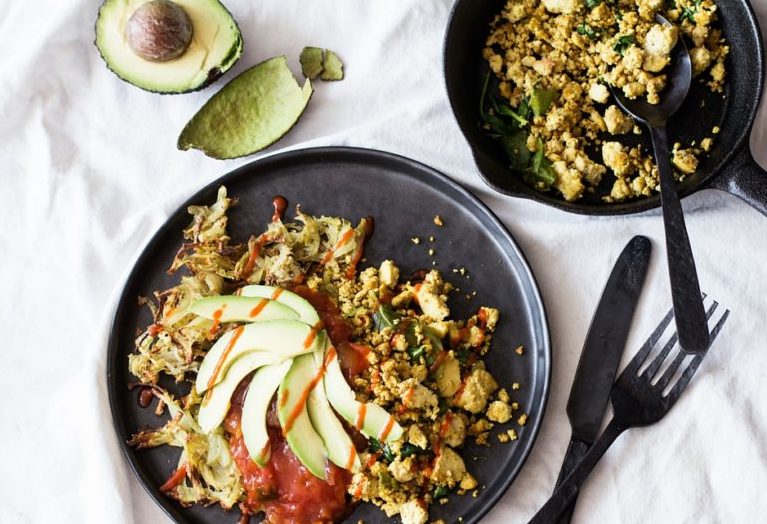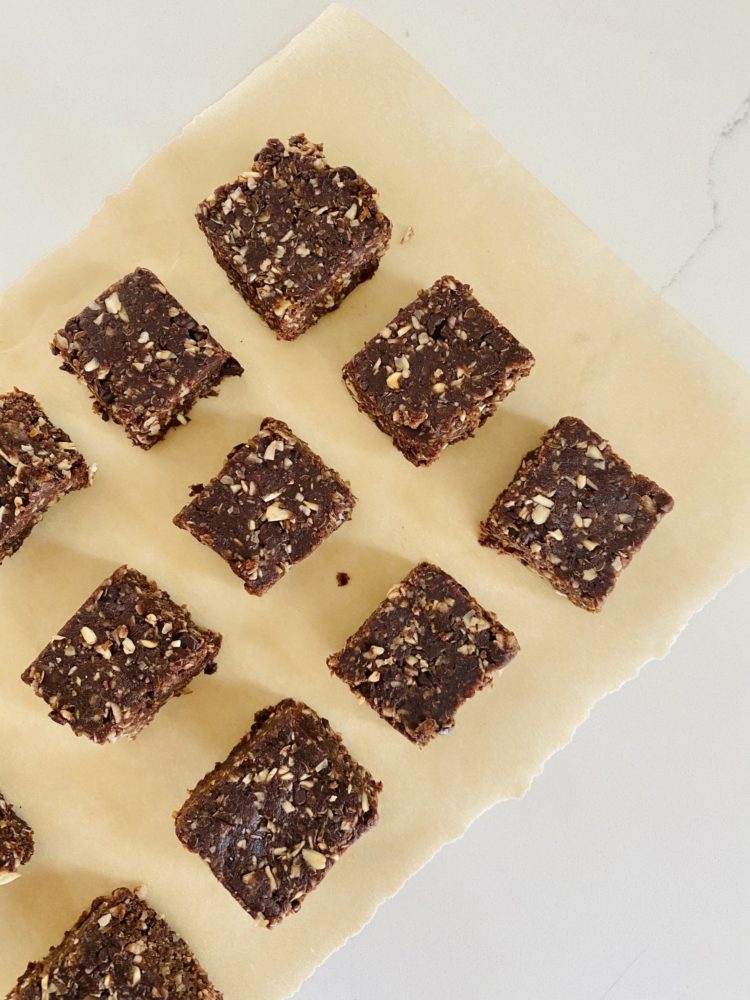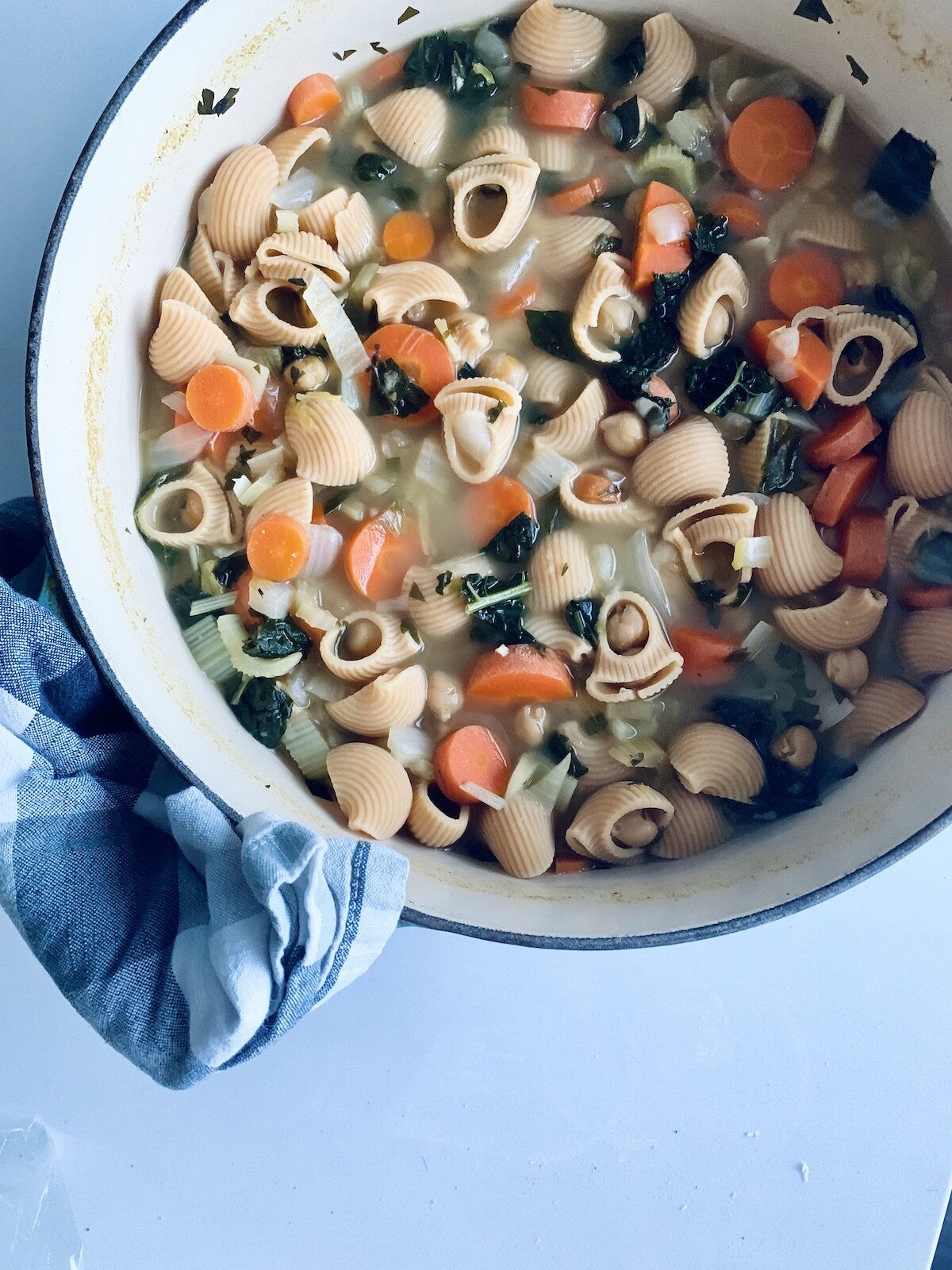If you’re a plant-based new mama, you might be wondering what to eat while breastfeeding so that you and your baby get all the nutrition you need. In this guide, we’ll cover how what you eat affects your milk, breastfeeding nutrition basics when you’re plant-based, foods to help boost supply, and more!

How What You Eat Affects Breast Milk
Does everything you eat end up in your breastmilk? Certain aspects of your milk are affected by what you eat including the fats you eat, vitamins A, D, and some B vitamins, and certain minerals like folate, iodine, selenium, and choline. Because of this, it’s critical that you eat nutritious foods while you’re breastfeeding so that you can pass those nutrients on to your baby.
Hormones like insulin, environmental toxins, and endocrine-disrupting chemicals can also find their way into your breastmilk. These things can impact your baby’s health, so the best thing you can do is reduce your exposure to these toxic chemicals. Try switching to safer skincare, makeup, and other personal care products along with taking these 7 steps to lower your toxin exposure.
How many calories do you need while breastfeeding?
Along with what to eat, you might also be wondering how much to eat. You might be surprised to learn that many women actually need more calories while breastfeeding than they did while pregnant!
Breastfeeding requires an additional 400-700 calories per day. Aim for an additional 500-700 calories in first 6 months if you’re exclusively breastfeeding, and an additional 300-400 calories after 6 months when your baby starts eating solids. In the early days of breastfeeding, I often woke up in the night hungry! I kept a basket of energy bars and nuts on my nightstand so I could refuel while my little one nursed.
Breastfeeding Nutrition Basics
As you know, it can be tough to keep up with the high nutrition needs of pregnancy. Because of this, many women enter postpartum depleted in important nutrients. Nutrient deficiencies in pregnancy can lead to postpartum complications such as impaired recovery and increased risk of postpartum depression. Not to mention, deficiencies can affect the quality and quantity of your milk supply. It’s important to continue paying attention to your nutrition needs and make sure you’re replenishing your stores.
Nutrient needs that remain similar to pregnancy: Calcium and vitamin D needs remain the same as they were in pregnancy, but it’s still critical to get enough of both. The essential fatty acid DHA also remains the same and just as important. Folate and protein needs also remain similar, so make sure your postnatal vitamin contains folate and that you’re eating leafy greens, beans, soy, nuts, and seeds regularly.
Nutrient needs that decrease: Because you’re no longer supplying blood for both you and baby (and you likely have not started menstruating again), iron needs fall drastically from 27mg during pregnancy to 9mg during lactation.
Nutrient needs that increase: Iodine, B12, and choline needs all increase from pregnancy. Getting enough iodine is important so that you can pass it along to your baby via your breastmilk for thyroid and brain health. Make sure it’s included in your postnatal vitamin and include iodized salt or seaweeds in your diet. If you’re 100% plant-based, you’ll want to be diligent about B12 supplementation, making sure that the combination of your postnatal vitamin and possibly an additional B12 supplement are supplying you with around 150mcg per day. Choline is another nutrient that you may need additional supplementation for if you are 100% plant-based. You can get choline from foods like shiitake mushrooms, soymilk, wheat germ, kidney beans, and quinoa.
Supplements For Plant-based Breastfeeding
Prenatal or Postnatal Multivitamin
Either continue taking your prenatal vitamin while breastfeeding or switch to a postnatal vitamin. I like the Ritual Postnatal Multivitamin. A big perk: it includes omega-3s, so that’s one less extra pill you have to swallow. If you’re 100% plant-based or vegan, you’ll want to add some additional B12.
Vitamin D
Make sure that you’re getting at least 600 IU of vitamin D from your postnatal multivitamin or from an additional vitamin D supplement.
Your baby also needs vitamin D! Breastmilk is low and vitamin D, so it’s recommended that breastfed infants are given 400 IU of daily vitamin D beginning at birth. I use this vitamin D supplement for my baby. A drop on the nipple before nursing once a day gives him what he needs.
DHA
This essential omega-3 fatty acid is important for your baby’s development. It’s found mostly in fish and algae, so if you don’t eat fish you’ll want to take a micro-algae DHA supplement of at least 300 mg for as long as you’re breastfeeding.
You’ve probably heard that ALA, the type of omega-3s found in plant-based foods like chia seeds, flaxseeds, and walnuts can be converted to DHA. While this is true, the conversion rate is fairly low and varies from person to person. Also, there’s evidence that baby can only access the direct form of DHA – not mom’s converted stores. Because of this, it’s wise to take a supplement so you and baby are getting enough.
Vitamin B12
For 100% plant-based mamas, continue taking an adequate vitamin B12 supplement. This might mean you need to combine what’s in your postnatal vitamin with an additional B12 supplement so that you get around 150mcg per day.
Foods To Avoid or Limit While Breastfeeding
There are certain foods you should avoid while breastfeeding as well as foods you should limit.
High-mercury Fish
Fish that is high in mercury should be avoided while breastfeeding. You can find a list of the types of fish to avoid here.
Certain Herbs
While some herbal remedies can be very supportive during postpartum and actually increase milk supply (see below!), other herbs can be dangerous during this time or don’t have enough evidence to label them as safe. Before taking herbal supplements, drinking teas, or using herbs in other ways, do your research to determine if they’re safe.
Alcohol
Alcohol does make its way into breast milk, so the safest option is to avoid drinking alcohol while breastfeeding. The CDC states that moderate drinking (no more than 1 drink per day) can be safe, especially if you wait to breastfeed for 2-3 hours after drinking. Alcohol concentration is highest 30-60 minutes after consumption.
Caffeine
Caffeine from coffee, tea, and other caffeine-containing food and drinks also finds its way into breastmilk. Stick to low to moderate amounts of caffeine, no more than 300mg or 2-3 cups of coffee per day. If your baby is abnormally irritable or fussy, check in with your caffeine consumption.
Foods That Boost Milk Supply
Eating certain foods can support good milk supply while breastfeeding. Here’s a list of foods to include to boost your supply:
- Oats
- Fennel
- Fenugreek
- Chickpeas
- Sesame Seeds
- Brewer’s Yeast
Want more plant-based pregnancy support?
Grab the free Boost Your Fertility Checklist, Morning Sickness Guide, and
Pregnancy Herbs Safety Guide


